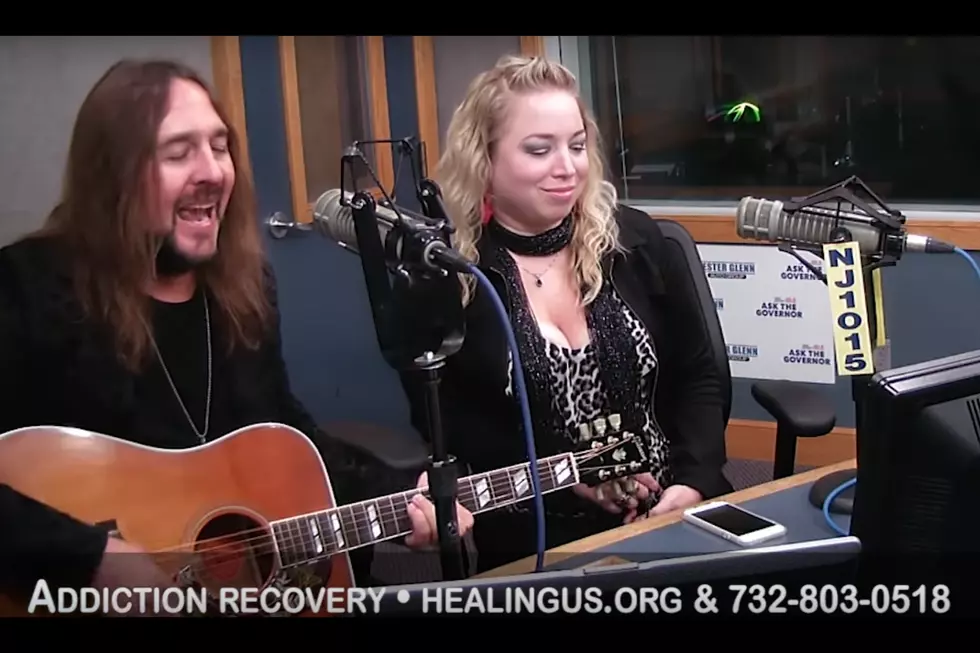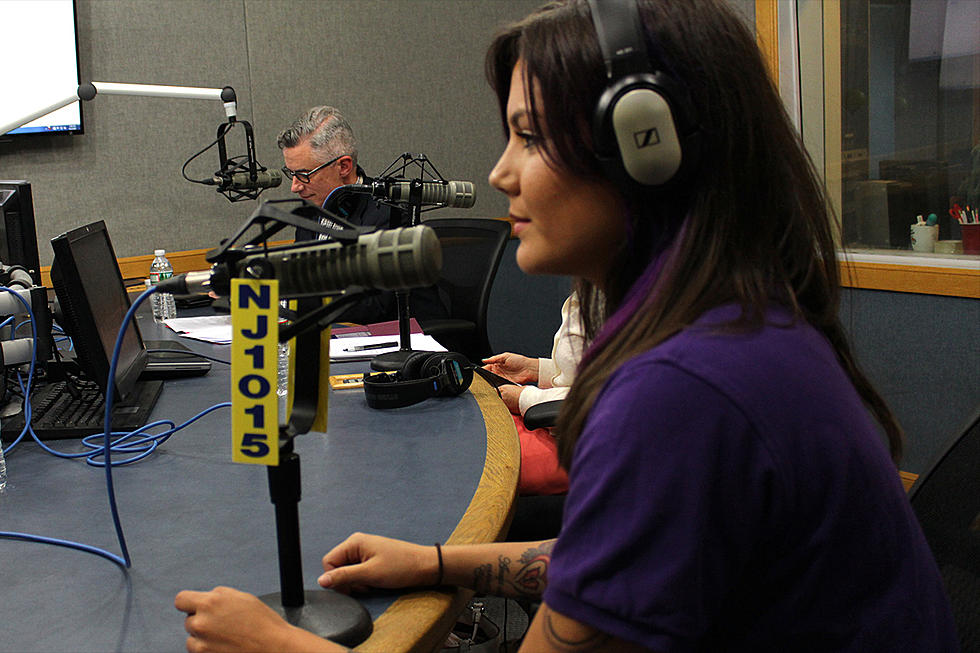
New Jersey 101.5 heroin and opiate town hall offers help and inspiration
Thursday night on New Jersey 101.5, a special town hall on opiate addition and treatment offered listeners information, guidance and hope about overcoming drug addiction.
A group of experts spoke on air while certified drug and addiction counselors from the Carrier Clinic offered assistance and guidance to those following the town hall online.
The panel included former Gov. Jim McGreevey, now an associate at Integrity House, a therapeutic residential community dedicated to treatment of addiction; state Acting Human Services Commissioner Beth Connolly; recovering addict Daniel Regan, who cofounded the CFC Loud N Clear Foundation with his mother; and former addict and drug dealer Carolyn Krug.
SCROLL DOWN TO END OF THIS STORY TO WATCH A REPLAY
Krug said in the midst of Jersey’s heroin and opiate epidemic, many are still in denial.
“They don’t want to admit that because you don’t live in a run-down neighborhood, that this isn’t going to happen but it’s everywhere,” she said.
Krug, who explained she grew up in a beautiful neighborhood, made the wrong choices and began selling drugs to her friends in high school.
“When I started I was selling marijuana so I could smoke for free," she said. “Then it was, I’m actually making money on this and kids who were my friends were asking can you get this, or can you get Xanax or painkillers, so I started getting more stuff.”
She also said she would introduce her friends to opiates to increase her profit margins.
“It tasted like cotton candy and smelled like burnt marshmallows, so I would get them hooked on that” she said.
“These are kids from Howell, Freehold, Manalapan and Marlboro, all over Monmouth County, so it can happen anywhere.”
She added those using drugs all over New Jersey right now are the ones you least expect.
“It’s going to be your son’s best friend, or your daughter’s boyfriend’s brother. It can literally be anybody. I would sell to my friends parents, their uncles, cousins, everybody,” she said.
Krug was eventually arrested, and realized she wanted to turn her life around when her mother, on her birthday, came to visit her in jail along with her sister, whom she hadn’t seen in years.
“She told me she wanted to have a relationship with me,” said Krug. “I just sat on the other side of this wall, I couldn’t give her a hug, I couldn’t do anything and it literally tore me to pieces inside and I said to myself I would be a part of my family again, and that’s what I did.”
Her advice to parents was simple and direct.
“If you think your child is under the influence or is doing drugs, and especially if they get caught, don’t bail them out, leave them in jail,” she said. “Give them a chance to think about things, and when they come out don’t necessarily push anything down their throat to an extent like whoo, but show them you’re going to support them and that you’ll help them through it but don’t enable them.”
“You don’t know how many parents I’ve seen that just enable their kids to the point where they just don’t care anymore. Sometimes tough love is the best love but you still have to remain somewhat sensitive.”
John Koufos, the executive director of the New Jersey Reentry Corporation, said an expanded effort is moving forward in Toms River to help former inmates get the help they need to be able to re-enter society.
Koufos, a former defense lawyer, drug addict and prison inmate himself who spent six years behind bars, said the Reentry Corporation will be picking people up in Toms River and providing Integrity House treatment services for them.
“We’re going to be sending a van because transportation is an issue to get to treatment. We’re going to be sending a van to different clusters in Ocean County to pick up people who want to come to our re-entry program,” he said. “By June 15, Integrity House will be accepting clients in our facility, so we intend to have the van deployed about that time. The idea is to remove the barriers to focus on sobriety.”
McGreevey, who is the chairman of the NJRC, said “that’s like housing, employment, that’s getting your ID, that’s linking to a health care facility, so we’re moving that, we’re going to be picking people up.”
Koufos added, “you think you know everything when you sit as a criminal defense lawyer but then you go in that building (when he was sentenced to jail) and you know you’re not coming out until who knows when. You realize the choices you made in not getting treatment have disastrous consequences for others.”
More From New Jersey 101.5 FM









